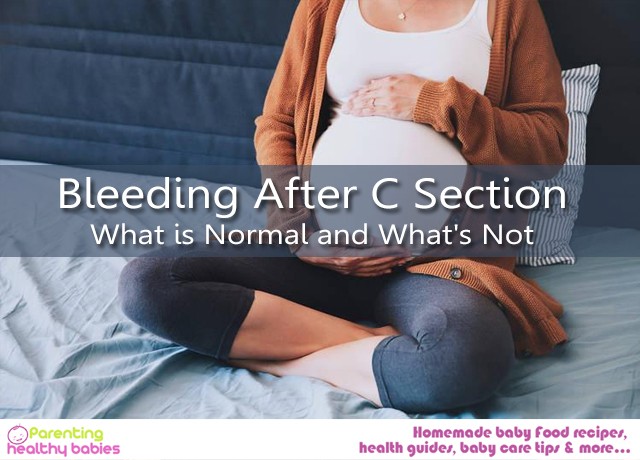The phase of pregnancy in a woman’s life is nearly a roller-coaster ride. Frequent mood swings, food cravings, body aches, increased trips to the bathroom, pre-baby jitters, and many more changes and transformations are experienced by a woman during her pregnancy. One such issue that keeps her troubled during this period is insomnia. Sleepless nights, is the most common complaint that most of the women come up with.
Insomnia during pregnancy can be caused due to many reasons. It can either be the excitement or anxiety about your baby that keeps you awake every night. These sleepless nights will again lead to more frequent mood swings, since your body does not get the required amount of sleep. And so, insomnia during pregnancy is a condition which needs proper attention and care.
Insomnia During Pregnancy: Things You Should Know
Insomnia in simple terms means, difficulty falling asleep, staying asleep or both. Around 78% women experience sleep problems during pregnancy. Though insomnia during pregnancy is common at all stages, it tends to happen more during the first and third trimesters. The major causes for this problem can be due to the increased bathroom breaks during night, heartburn, hormonal changes, etc. With the increased level of tiredness and the lack of sleep, women tend to experience frequent mood swings and irritation. Nevertheless, though insomnia is miserable to you, it will not harm your baby in any way.
Causes of Insomnia During Pregnancy
The causes of insomnia during pregnancy can be listed as below:
- Discomfort due to the increased size of abdomen
- Heartburn
- Having to urinate frequently
- Leg cramps
- Hormonal changes
- Anxiety
- Frequent and vivid dreams
- Anticipating the arrival of your baby
- Nausea and vomiting
- Back pain
- Breast tenderness
- Shortness of breath
- Congestion
Apart from these major causes, stress can also be a reason for your sleep deprivation. It is obvious for every woman to be anxious about the labor and delivery. Also the thoughts of after delivery challenges and added responsibilities seem to be very scary for the new mom-to-be. But it is important that you remember that worrying is not good for your mental health. The more control you have on your thoughts, the more easy it becomes to plan for the future. But if you are unable to cope with the constant thoughts then try writing them down in a diary, or discuss them with your partner.
How to Treat Insomnia
Just like many other common ailments, insomnia can also be treated at home just by changing your daily routine. These simple sleeping tips and treatments will not just help you stave off insomnia during pregnancy, but also enhance your overall lifestyle. Let us now take a look at the various treatment methods to combat insomnia.
Create a Routine
Implement a night routine, to condition your brain and body to know when it’s time to relax. This is one of the best things you can do to manage insomnia while pregnancy. Avoid using phone, laptop or watching TV before you sleep. The blue light from these gadgets will affect your body’s circadian rhythm. Take a bath with some soothing essential oil and Epsom salt, this will calm your mind, improve your mood, decrease body aches, and mainly will help you fall asleep soon. Make sure your room temperature is balanced, since it can affect your baby. Creating a night routine like this will eventually stave off insomnia from your life.
Exercise
Pregnancy makes you feel tired even without doing a single chore, so working out during this stage can be a not so comfortable task for you. But you cannot ignore the benefit that it does to your overall health. Yoga and soft exercises during pregnancy will help improve both your physical and mental well-being. And mainly, doing certain exercises during pregnancy are said to calm your mind and body, eventually resulting in a good night’s sleep. Reach up to an experienced trainer to help you out with the right yoga poses.
Diet
Food is another important component of pregnancy. You body will act according to the food you feed it. Make sure to avoid drinks which will affect your sleep like, coffee, tea, sugar soda, etc. Drink plenty of water throughout the day. Eating your dinner will also help you digest it fast and will reduce the chances of heartburn during the night. Choose light snacks in the evening. And if you still feel hungry during the night, then drink a glass of warm milk, it will help you fall asleep soon.
Relaxation Techniques
Apart from yoga and the regular exercise, try doing some relaxation exercises during night. These relaxation techniques include relaxing each and every muscle of your body. This is a super helpful technique to calm your mind during night, which will eventually result in a good night’s sleep. A 2015 study in the journal Obstetric Medicine concludes that doing meditation helps treat insomnia during pregnancy. The study says that meditation is a non-pharmacological way of managing insomnia.
Medication
Though usually it is suggested that some medications should be avoided during pregnancy, there still are some medicines which are considered safe to take and that might help you sleep better. But before you decide to take any kind of medication, talk to your doctor. This rule applies to over-the-counter drugs, herbs and dietary supplements.
Extra Pillows
What else can make your sleep comfortable but like the pillows. Pillows can be used to support both the tummy and back. A pillow between the legs can help support the lower back and make sleeping on your side easier. Some specific types of pillows include the wedge-shaped pillow and the full-length body pillow which let you sleep super comfortably.
Sleep on your Left Side
The going-to-be mothers are suggested to sleep mostly on their left side. Mainly during the third trimester, sleeping on your left side will help you increase the flow of blood and nutrients to the fetus, uterus and kidneys. Also avoid sleeping on your back for long period.
Short Naps During Day
Naps are usually advised against, as they tend to disrupt regular sleep cycles making going to sleep at night more difficult. However, studies have shown that napping while pregnant can prove beneficial. A poll by the National Sleep Foundation found that 51% of women reported at least one midweek nap and 60% reported napping on the weekends. However, if you choose to nap make sure they’re not more than 20-30 minutes long, and don’t nap too close to bedtime.
Rice Milk with Nutmeg
Drinking a glass of rice milk with nutmeg in it helps you deal with insomnia. You just get half a mug of rice milk, grate some nutmeg in and then put in the microwave. Drinking it warm helps you fall asleep sooner. You can either choose plain warm milk or try this to add more nutrients to your body.
Get a Salt Lamp
Mostly it is suggested that to combat insomnia you need to make your bedroom look cosy and comfortable. You can place any item in your bedroom which helps improve your mood. Favorite photo frames, wind chimes, dream catchers, etc. Salt lamp is one such thing which makes your room feel so cosy and is such a nice way of having soft, warm light in your bedroom before you sleep.
Tart Cherry Juice
According to studies tart cherry juice increases sleep time by up to 90 minutes a night! That’s because it contains the world’s highest melatonin content of any food (the hormone that helps us sleep.) Try 1 ounces of this tart concentrate twice a day (one dose around 3 p.m. and the other dose around 8 p.m.) mixed in kefir or yogurt for extra calcium and blood sugar balance. It usually works within a week or two. As a plus, tart cherry juice has a low glycemic index and is high in antioxidants so it’s healthy during pregnancy.
Does Pregnancy Insomnia Go Away?
Insomnia during the first and last stages of pregnancy is a common problem and does usually mean anything is wrong. For most women insomnia during the first trimester will pass hence you will not have to worry about your sleeplessness. But if you experience severe leg cramps or heartburn which keeps you awake all night then consult a physician. Try out all the remedies given above and implement the one which best suits you. Also consult your doctor before implementing any treatment methods.
References
https://www.ncbi.nlm.nih.gov/pmc/articles/PMC5017073/
https://www.babycentre.co.uk/a547372/insomnia-in-pregnancy













